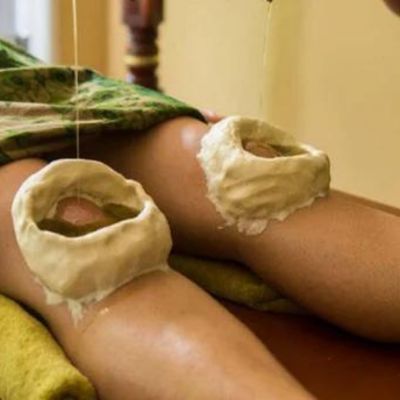Our Services
- Home
- Services

Knee Pain
Knee pain can stem from a variety of causes including overuse, muscle strains, tendinitis, arthritis, and ligament injuries. Activities such as sports, exercise, or even everyday movements can lead to these issues, potentially causing significant discomfort. Conditions like osteoarthritis and other forms of arthritis often contribute to persistent knee pain, affecting both the structure and function of the joint.
For many individuals, knee pain is a temporary issue, but for others, it can become a chronic problem that hampers daily activities and limits their quality of life. Whether the pain is severe and debilitating or mild yet persistent, it’s important not to ignore it. Addressing knee pain promptly can help manage symptoms effectively and prevent further complications, ensuring that you can maintain an active and healthy lifestyle.

Signs and Symptoms of Knee Pain
- Swelling: Often indicates inflammation.
- Stiffness: Caused by the body to protect the damaged area by limiting movement.
- Limited Range of Movement: Affected muscles or tendons restrict the joint’s full range of motion.
- Tenderness: Pain upon touching, a sign of inflammation.
- Weakness: Common in the part of the body associated with the joint.
- Inability to Move the Part: Difficulty moving the affected part due to pain or tendon/muscle issues.
- Pain: Can occur at the joint or in related areas.
- Difficulty Walking: Instability and limping due to discomfort.
- Locking of the Knee: Inability to bend the knee.
- Redness and Swelling: Inability to extend the knee, often leading to shifting weight to the opposite leg.
Knee Pain and an Active Lifestyle
Knee Ligament Injuries
Knee Cartilage Tears
Arthritis of the Knee
Rheumatoid Arthritis of the Knee
Ayurvedic Therapies to Reduce Knee Pain and Swelling
- Abhyangam
- Kizhi
- Pizhichil
- Janu Basti
- Upnaham
- Sneha Basti
- Kashaya Basti
- Marma Chikitsa
Herbal Remedies for Knee Pain Treatment
- Add camphor and ginger oil to mustard oil, warm it slightly, and massage the joint at night.
- Grind garlic cloves into a paste, mix with mustard oil, boil, cool, and strain. Use this oil for massage.
- Grind fenugreek seeds with water, mix with turmeric, and apply to the joint overnight.
- Consume a spoonful of fenugreek seeds and sesame seeds daily.
- Fry gum of the babul tree in ghee, add sonth powder, pipli powder, ground cardamom, and sesame. Mix with jaggery to make laddoos, and eat them in winter to strengthen joints.
- Massage regularly.
- Consume pepper daily.
- Mix ashwagandha powder, shatavari, arjuna, bala, and laksha churna with milk, and take twice a day.
Tips for Managing Knee Pain
- Avoid sudden intense physical activity.
- Stay active and avoid a sedentary lifestyle.
- Monitor your weight as obesity puts extra stress on bones and joints.
- Check your posture while working, sitting, or driving.
- Avoid sitting for long periods. Take short breaks, stretch, walk, and climb stairs.
- Be cautious while lifting weights.
- Include calcium and vitamin D-rich foods in your diet.
- Manage stress, and avoid smoking.
Best Natural Treatments for Knee Pain
- Soak your knee joints in hot water. Sit in a hot water tub with knees submerged for at least 10 minutes.
- Include something bitter in your daily diet.
- Engage in regular exercise or go for a daily walk.
- Avoid spicy and fried foods.
- Try acupressure and acupuncture.
info@santharisingh.com
